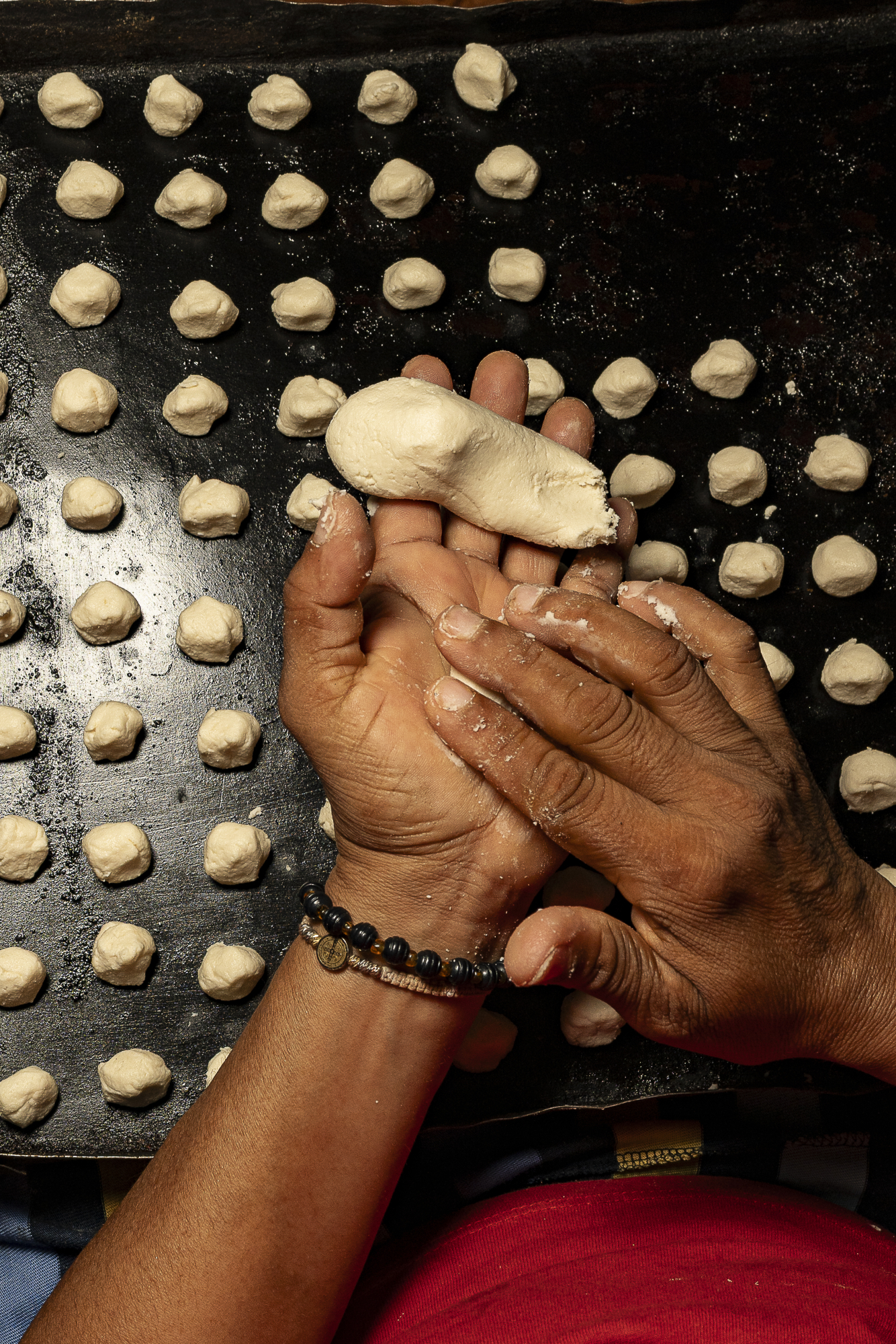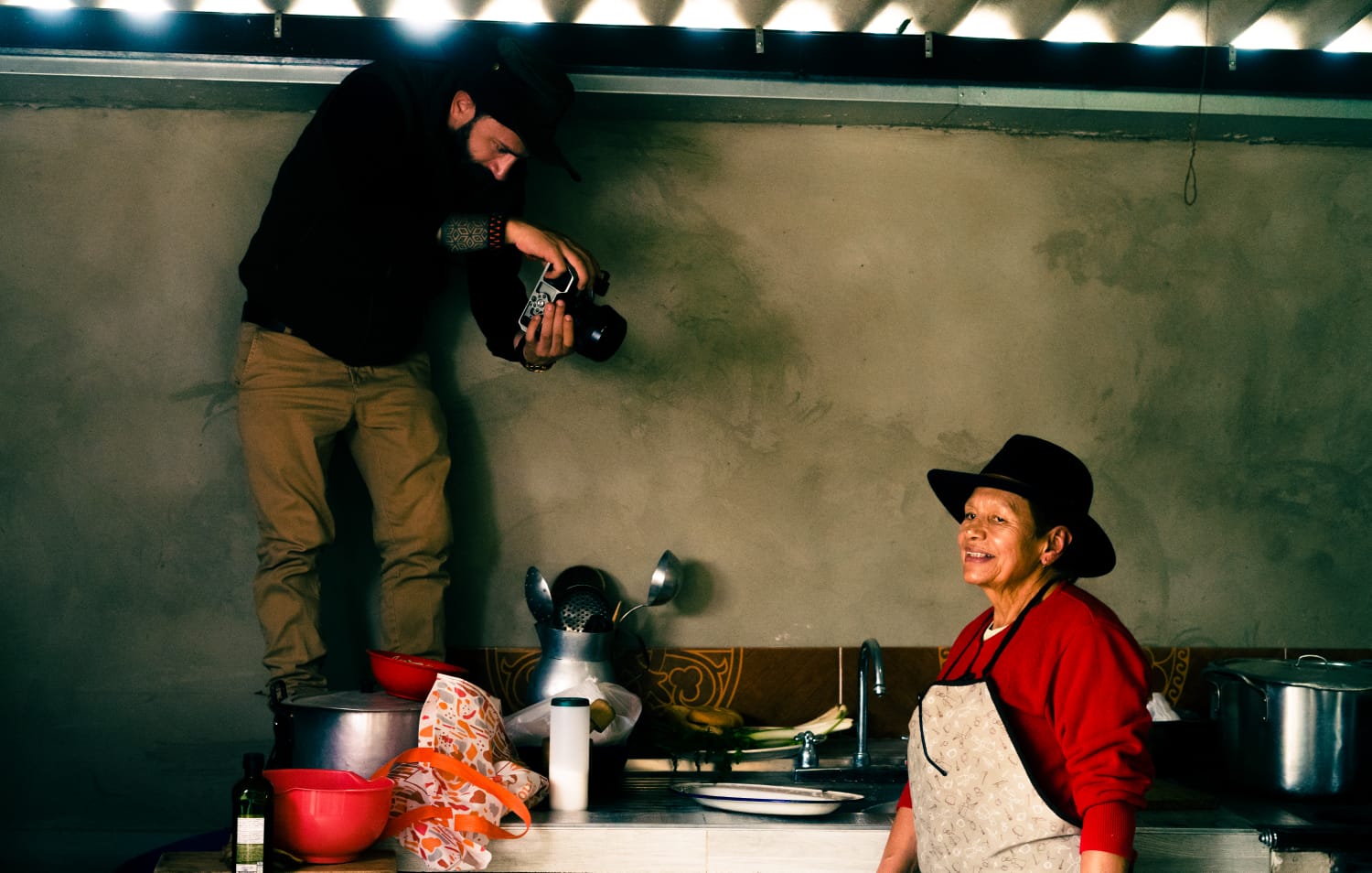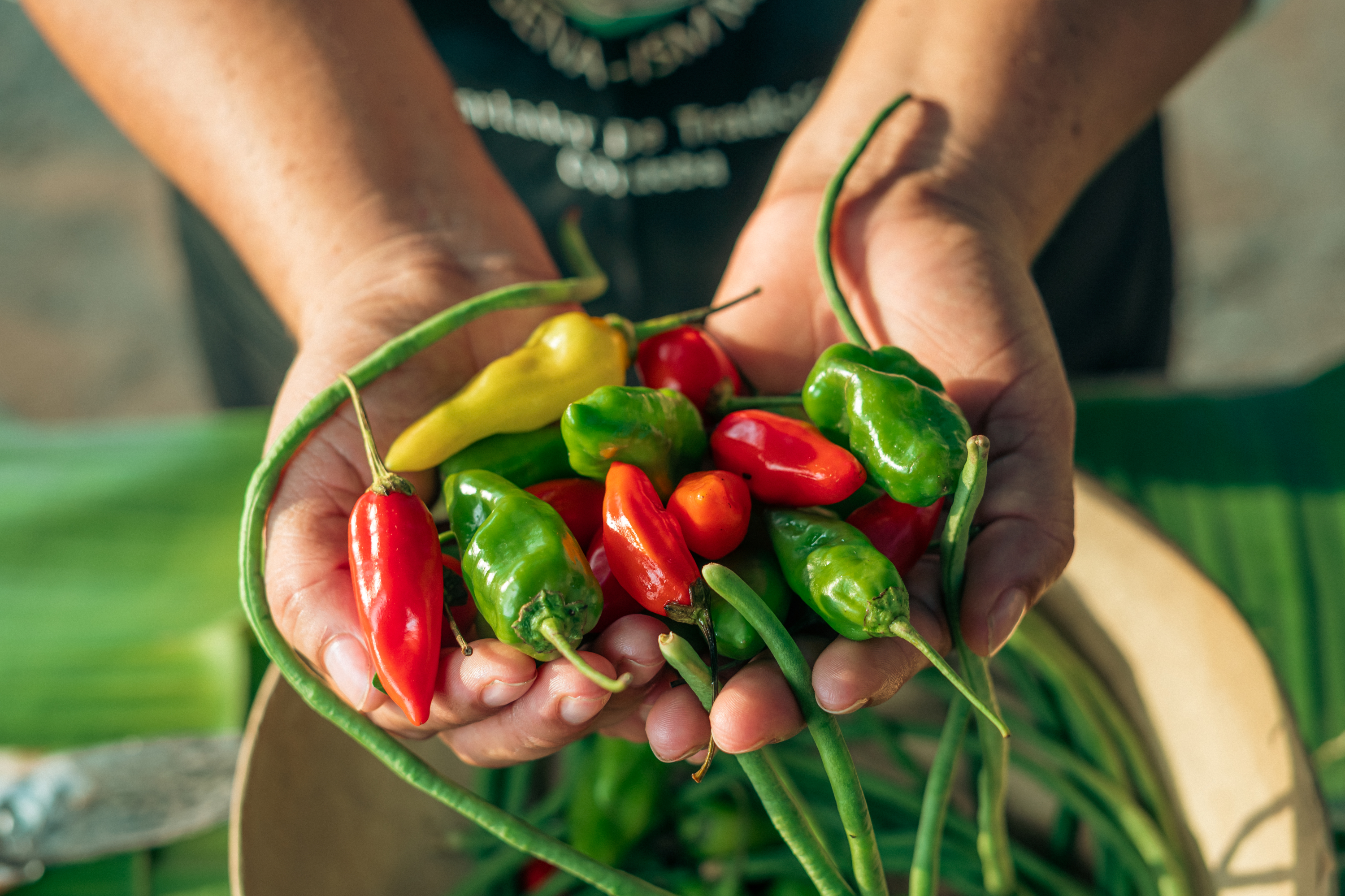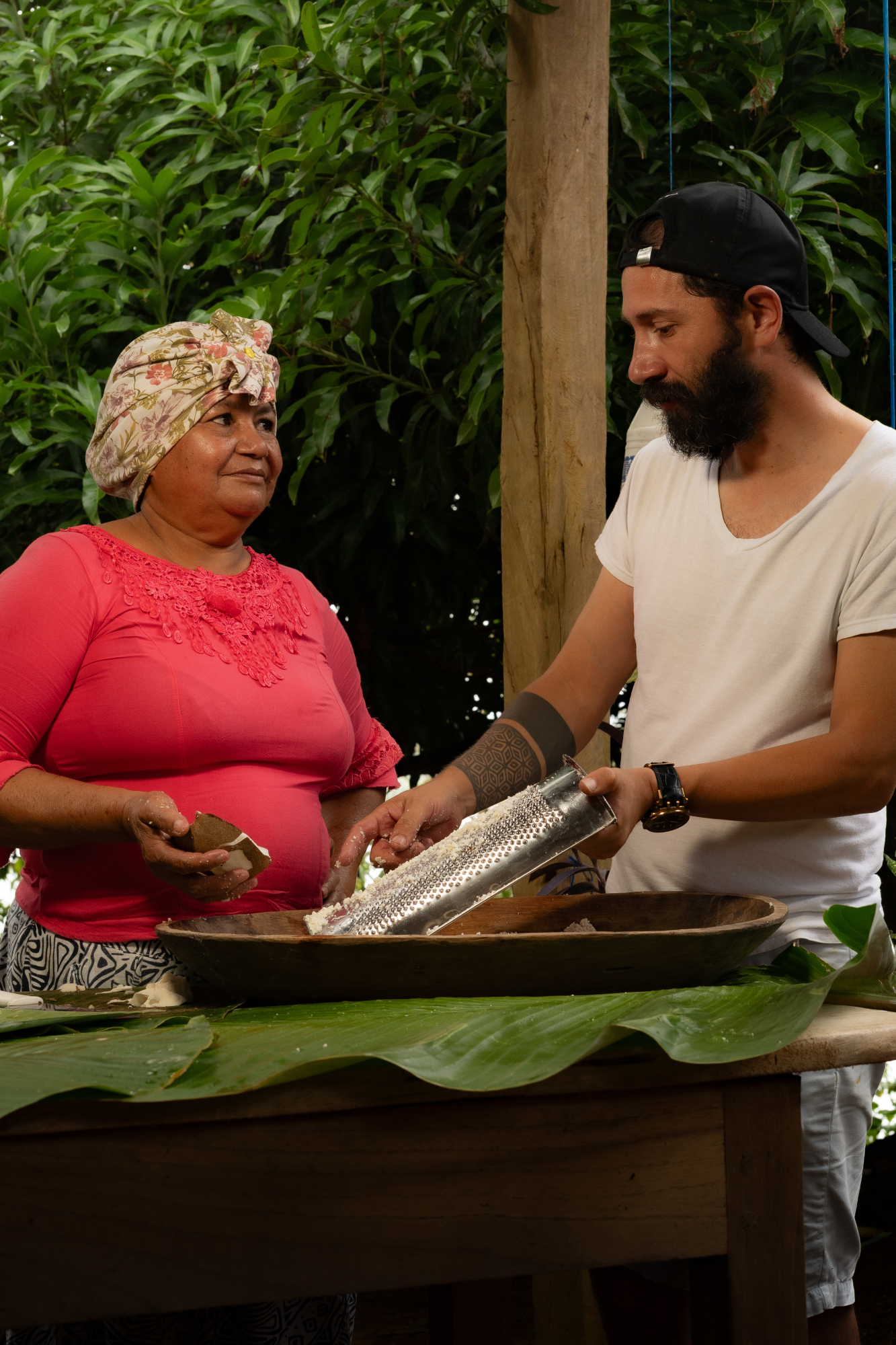José Luis Rivera: the chef who travels across Colombia to rescue the living memories of traditional cooking.

When José Luis Rivera speaks of fire, he's not referring to a culinary technique. He's speaking of the heart of rural kitchens, of that heat that not only boils but unites, like an ember that never goes out in the midst of the lands it has traversed.
In his voice there is memory, there is earth, there is countryside. But there is also city. He was born in Chía, Cundinamarca, when it was still a town of pastures, Sundays of sancocho by the roadside, and steaming pots as centers of family gatherings. There, he says, his obsession was born: to contemplate a boiling pot as if it were a ritual.
Although he is recognized today on social media as the chef who documents the culinary knowledge of forgotten peoples, José Luis didn't come to the kitchen by lineage or inheritance.
He says that, like almost everything important in his life, he arrived by accident. He was a waiter in a restaurant, and one day, when a cook was absent, he offered to replace him. He was 17 years old. He never left the kitchen again.
"Cooking was the only thing I learned to do," he says with conviction. And besides, he's certain it 's what he's best at and what I like most.
José Luis's professional career began unexpectedly, landing on television. He served as the culinary director for several cooking reality shows, including MasterChef Colombia and MasterChef Mexico.
But he always had a deep connection with the countryside and traditional cuisines. He rediscovered it while living in Dubai, surrounded by European techniques, but without knowing how to make a Colombian tamale or empanada.

Preparing diabolines, a typical dough from Córdoba. Photo: Courtesy of José Luis.
"I had to learn how to make empanadas while I was in the United Arab Emirates. That's when I realized something was wrong: I knew how to cook French food, but I didn't know how to make my own."
He felt the need to return. This time with a clear purpose: to travel around Colombia to learn, not from books, but from real experience . He started in Huila, where he owned a restaurant.
He took advantage of Mondays and Tuesdays, when it was closed, to explore the villages, talk to the people, gather stories, learn techniques, and return with local ingredients to transform into new dishes.
Since then, he hasn't stopped. He's traveled almost the entire country (only three departments are missing) , and he documents each trip with his cell phone camera. Because for him, fire and peasant hands are the protagonists.

In the photo, José Luis is filming the cook Teresita. Photo: courtesy of José Luis.
On these journeys, José Luis found in audiovisual language a way to narrate identity. During the pandemic, without work in television, he bought basic equipment and began teaching virtual cooking classes.
The success and growth on social media were such that it motivated him to continue. Today, his videos have accumulated thousands of views and have connected urban audiences with the rural kitchens that still endure.
The idea of documenting popular knowledge wasn't always seen the way it is today. José says, "I started with ugly photos, poorly made videos. But the important thing was what was being told. The stories were powerful."
Stoves that resist José Luis not only cooks, he also builds bridges. These bridges have led him to collaborate with the Ministry of Foreign Affairs in promoting Colombia abroad and to work on publishing projects alongside SENA instructors.
One of them, Ricardo Malagón, invited him to document the cuisines of Meta, Boyacá, and Córdoba to create cookbooks that have been nominated for and won international awards such as the Gourmand World Cookbook Awards.
Each department has touched him differently. In Córdoba, for example, he discovered the Zenú community of San Andrés de Sotavento, where seed guardians protect corn varieties that don't appear in the markets.
In the Amazon, he was amazed by the tucupí and wild yuca , whose ancestral knowledge only remains in indigenous communities. In Boyacá, native potatoes and their varieties were a great discovery for him.
"Colombia seems like ten countries rolled into one," says José with a smile. "There's so much to tell, so much to protect. Traditional cuisine is at risk, and if we don't document it today, tomorrow it will be just a memory."
That's why he insists on doing it without ego, without the spotlight, without taking center stage. His focus is clear: the ones who should shine are the woman making casabe in her yard, the farmer planting sweet peppers, the grandmother who still bakes arepas over charcoal embers. He just wants to be a channel.

Photo taken by José Luis during his tour of the department of Córdoba. Photo courtesy of José.
For him, it's important not to "steal" recipes or appropriate knowledge. His intention is to communicate ancestral knowledge, but without losing sight of who the makers and guardians of traditional cuisines are.
Fire as a compass Talking to José Luis is like following the rhythm of someone who has made travel a way of being in the world. When he walks through a land, he says he does so “hungry.” Not just for food, but for stories, aromas, sounds, and silences.
"Photography is looking at the land with hunger," he says. And cooking is giving back to that land a little of what it gives you.
He says it with the passion of someone who has stood for hours in front of a stove watching a pot boil. Because for him, fire isn't just a source of heat: it's a symbol.
"The hearth is memory, resistance, language. And through it, Colombia can tell its story," he says with a hint of hope.
In his current workshops, José Luis teaches young chefs and content creators how to use their cell phones as a storytelling tool. He assures that you don't need an expensive production company or a master's degree in communications. All you need, he says, is discipline and heart.

In the photo, Matilde Guerra, a cook at the Urrá Reservoir in Alto Sinú, Córdoba. Photo: Courtesy of José.
He laughs and says he was the worst cook; his mother wouldn't let him near the kitchen. But with hard work and practice, he learned. And he also applied that to his storytelling.
Today, José Luis dreams of creating an international catering service that brings the products and stories of rural communities to other countries.
He's already cooked in Japan, Mexico, and Europe. But he wants more: a global stage for the hands that teach everything. For the woman who shared the wrap recipe with him. For the grandfather who showed him how to grind corn. For the kitchens without ceilings or walls that he calls "open kitchens."
He longs for a Japanese person to try a wrap and feel the same way he did when he first tried tucupí: surprise, joy, and a desire to learn more.
When asked what he's most proud of, he doesn't hesitate: "Of my country. Of its people. Of those who fight it out in the territories. Not of the "living" Colombian, but of the one who works hard, who endures. That's why I prefer to use my social media for them. Let them be the protagonists."
José Luis doesn't present himself as a chef, an influencer, or a researcher. He presents himself as a cook. One who travels hungry, who listens more than he speaks, who lets himself be mesmerized by the simmering of a pot, and who learned to see the country from his stove.
And as long as there's fire, hands that knead, and voices that tell stories, José Luis Rivera will be there: with his cell phone, his knife, his notebook. Walking through Colombia to continue learning about the culinary traditions of the hidden corners of this country.
To learn more about José Luis's stories, you can follow him on social media at @joseluis_cocina.
ANGELA PÁEZ RODRÍGUEZ - EL TIEMPO MULTIMEDIA JOURNALISM SCHOOL.
eltiempo




